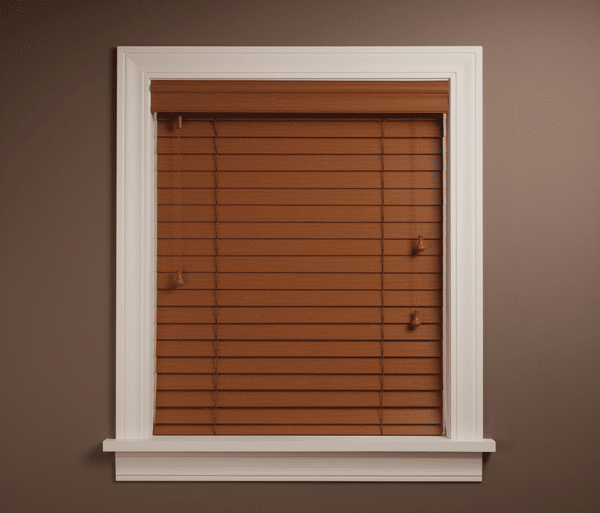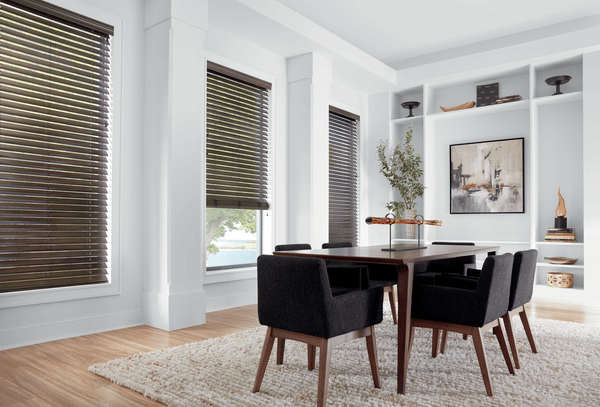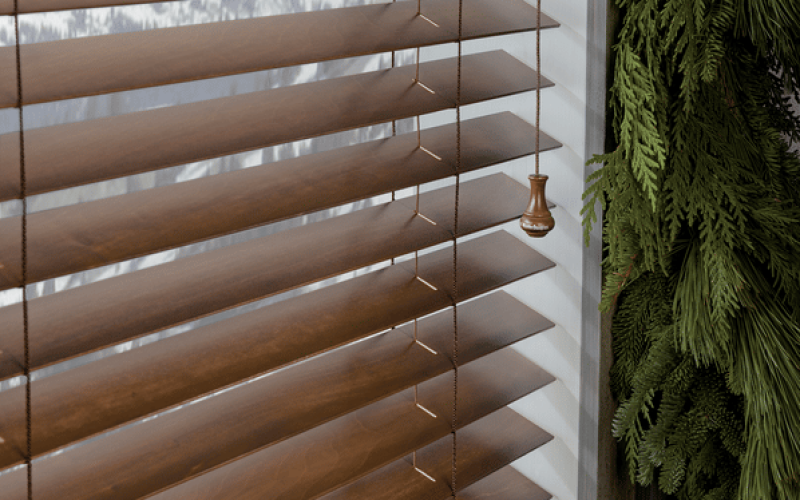Wood vs Faux Wood Blinds
Wood blinds are a very popular choice for homeowners, and give you the opportunity to choose between real and faux wood blinds. Even if the ultimate choice is majorly influenced by your requirements and needs, there are certain things that you need to know before making the final decision.
Real wood blinds can add elegance to any room but might not perform well in moist areas. On the other hand, faux wood blinds work very well in kitchens and bathrooms but might end up giving the place a very casual look.

Real Wood Blinds
Rich and warm, real wood blinds create a timeless appeal and have a very organic appearance. At the same time, wood amazingly complements homes with modern architecture too as it pairs very well with any wooden furniture. If you have a wood-based interior, real wood blinds are the ideal window treatment to opt for.
- Beautiful and organic appearance: Real wood blinds have natural textures and patterns from the hardwood, which give them an elegant, timeless look that is visually appealing in almost any space.
- Excellent insulation: Because wood blinds are made with natural wood, they help keep out the cold in winter and the sun in summer. They are also an excellent choice for energy efficiency as they can help reduce energy consumption and keep your energy bills low.
- Lightweight and durable: Wood blinds are lightweight since they are made from durable, thin and flexible, wooden slats, which make them perfect to cover large windows.
Unfortunately, real wood blinds are not suitable for high humidity regions, as they can cause them to fade and warp. They are also more expensive and aren’t as flexible as faux wood blinds. Wood blinds require proper care including gentle wiping with a dusting cloth without rubbing the slats harshly, and don’t use harsh chemicals or water.

Faux Wood Blinds
As the name implies, faux wood blinds are an imitation of real wood blinds. They provide a wooden touch to some extent and are made of materials that can prove to be much more durable than real wood. They are usually made of PVC, vinyl, and composite wood, all of which are treated to give them the appearance of real wood.
- Extremely durable and moisture resistant: faux wood blinds are long-lasting and don’t fade or warp on being exposed to humidity, which makes them perfect for high humidity areas like bathrooms and kitchens.
- Easy to clean and install: A simple microfiber cloth with any type of cleaning product can wipe all the dirt away.
- Affordable: Faux wood blinds are an inexpensive choice while still giving your place a natural wood feel.
However, faux wood stills faux wood, it doesn’t have the same luxury and richness that you can get from genuine wood blinds. They also have a negative point when it comes to weight, since the material is much heavier than real wood blinds, and you might need two or more sections to cover a large window.
In the end, the most important considerations when it comes to choosing your wood blinds are your taste, lifestyle, and budget. Contact our window coverings specialist to help you determine which type of wood blinds will best fit your needs.

